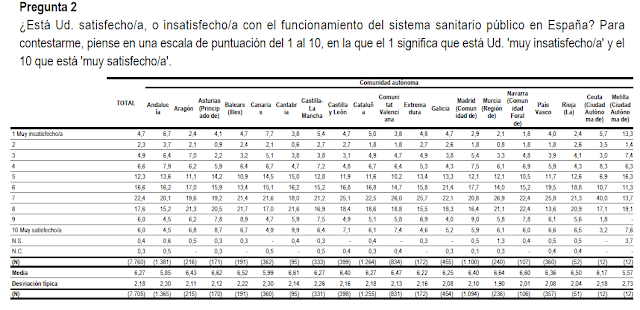The Lure of Economic Nationalism: Beyond Zero Sum
Abans d'ahir a FT Daron Acemoglu mostrava el panorama econòmic del moment. Un món occidental on la desconfiança amb les institucions creix i on noves fronteres econòmiques limiten la cooperació i explica com tot això ens porta a un declivi social.
Hi ha un llibre que reflecteix exactament això que explicava Acemoglu i que avui ve resumit amb IA. L'atractiu dels jocs de suma zero s'ha incorporat al debat polític del moment, els aranzels en són la màxima expressió perquè limiten la capacitat dels guanys de l'intercanvi mutu. En un joc de suma zero, qui guanya s'apropia de la pèrdua de l'altre. I si la resposta de l'altre és la mateixa, aleshores hi ha una carrera per limitar l'intercanvi. Hi surt novament citat en aquest llibre Hirschman, del que tantes vegades he parlat.
El llibre "The Lure of Economic Nationalism: Beyond Zero Sum" de Kenneth A. Reinert explora el concepte de nacionalisme econòmic, la seva història i les seves implicacions en el món contemporani. L'autor argumenta que el nacionalisme econòmic, impulsat per una mentalitat de suma zero, és perjudicial per a la cooperació internacional i el benestar global.
Aquí hi ha un resum dels punts clau del llibre:
- Nacionalisme econòmic: El llibre defineix el nacionalisme com una expressió d'una identitat social construïda, variable i mal·leable. El nacionalisme econòmic té una llarga història, que inclou el mercantilisme dels segles XVI i XVII, així com el pensament de Friedrich List, que creia que l'economia havia de servir els objectius nacionalistes. Aquest concepte ha evolucionat fins al tecno-nacionalisme modern, on els estats busquen la independència tecnològica per raons de seguretat nacional i avantatge competitiu.
- La mentalitat de suma zero: L'autor destaca que molts nacionalistes econòmics tenen una mentalitat de suma zero, creient que els guanys d'una nació impliquen pèrdues per a altres. Aquesta mentalitat obstaculitza la cooperació i el comerç mutuament beneficiós. El llibre assenyala que les situacions de suma zero reals són rares i que moltes persones perceben erròniament situacions de no suma zero com a tal.
- Albert Hirschman i el seu llibre oblidat: El llibre comença amb la discussió de l'obra de l'economista Albert Hirschman "National Power and the Structure of Foreign Trade" (1945). Hirschman argumentava que la sobirania econòmica nacional podia ser perjudicial en el comerç internacional, i la seva visió era limitar l'autonomia comercial i col·locar-la dins d'un marc institucional internacional. El llibre de Hirschman va ser una resposta al context de l'ascens del feixisme a Europa i a la tensió entre "poder" i "abundància". La visió de Hirschman va ser parcialment realitzada a través de l'Acord General sobre Aranzels i Comerç (GATT).
- El paper de la indústria i la guerra: El llibre examina la connexió entre la indústria i la guerra, especialment en el context del nacionalisme econòmic. Esmenta com les idees de List sobre la importància de la indústria van ser adoptades per nacions com Japó per a enfortir el seu poder militar i econòmic. També discuteix la corba del somriure, que mostra que la manufactura és només una part de la cadena de valor, i que els països d'ingressos alts tendeixen a tenir avantatge en les etapes de la cadena de valor com la investigació i desenvolupament, el disseny i el màrqueting.
- L'etnotacionalisme: L'autor explora la relació entre el nacionalisme econòmic i l'etnonacionalisme, que sovint es manifesta en la discriminació contra els grups externs. El llibre parla de l'ús de la identitat ètnica per part dels líders polítics que perpetuen fantasies i idees falses. Es discuteixen diversos exemples històrics i contemporanis de l'etnonacionalisme, incloent-hi el règim d'Hongria i el Brexit.
- Multilateralisme, innovació oberta i béns públics globals: El llibre conclou amb una crida al multilateralisme, la innovació oberta i la provisió de béns públics globals com a alternatives al nacionalisme econòmic. L'autor destaca que un sistema comercial basat en regles, com el de l'Organització Mundial del Comerç (OMC), és essencial per a la transparència, la predictibilitat i la resolució de disputes. Argumenta que les institucions multilaterals són necessàries per evitar catàstrofes i garantir una prosperitat global. El llibre també posa en relleu la importància de l'innovació oberta i la col·laboració per al progrés tecnològic, en contra de les polítiques de tecno-nacionalisme de l'autosuficiència.
En resum, el llibre de Reinert és una crítica del nacionalisme econòmic i la seva mentalitat de suma zero. Argumenta que, tot i que els estats juguen un paper clau en l'economia política, la cooperació internacional i el multilateralisme són necessaris per a la prosperitat global i per fer front als reptes del món actual.










